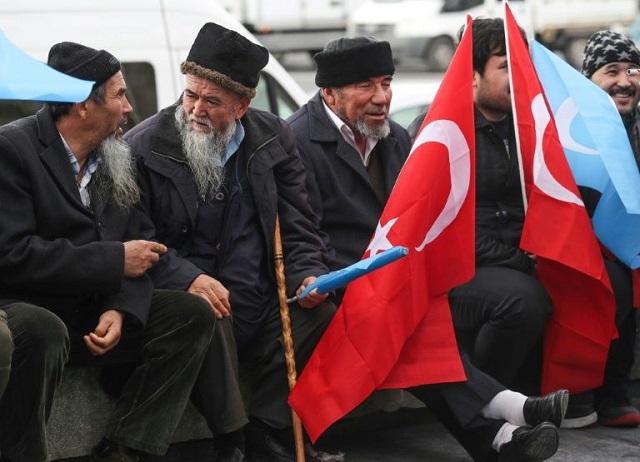
US Congress set to ramp up China pressure over Uighur rights
by The IndependentWashington, United States | AFP | The US Congress was set Wednesday to authorize sanctions against Chinese officials over the mass incarceration of Uighur Muslims, ramping up pressure in another front in the Pacific powers’ troubled relationship.
The US House of Representatives will vote later Wednesday on a final version of the Uighur Human Rights Act, which unanimously passed the Senate and has infuriated China.
The expected passage comes just as the United States is looking to sway China on another rights issue — Hong Kong, where Beijing is due to impose a security law that critics say will drastically curb free expression in the semi-autonomous territory.
Rights groups say some one million Uighurs and other Turkic Muslims in China’s northwestern Xinjiang region have been incarcerated in camps in a massive brainwashing campaign with few modern parallels.
The act “holds the Communist Party of China accountable for grotesque actions,” Republican Senator Marco Rubio, an ally of President Donald Trump, said after Senate passage in mid-May.
The act would require the administration to determine which Chinese officials are responsible for the “arbitrary detention, torture and harassment” of Uighurs and other minorities.
The United States under the law would freeze any assets the officials hold in the world’s largest economy and ban their entry into the country.
The law specifically mentions Chen Quanguo, the Communist Party chief in Xinjiang. Previously posted in Tibet, Chen has built a reputation for clamping down on restive minorities.
– China denounces ‘smears’ –
China initially denied the mass incarceration but has since described the camps as vocational training centers aimed at discouraging Islamic radicalism.
After an earlier version of the law passed in December, the Chinese foreign ministry accused the United States of hypocrisy in its own “counter-terrorism” efforts.
“This bill deliberately smears the human rights condition in Xinjiang, slanders China’s efforts in de-radicalization and counter-terrorism and viciously attacks the Chinese government’s Xinjiang policy,” said foreign ministry spokeswoman Hua Chunying, urging the United States to stop the law.
Trump can veto the legislation if it passes. But Congress could easily override his veto as the Uighur bill has passed almost unanimously in both houses with support from prominent Republicans and Democrats.
Trump last year hesitated at signing another law that angered China that sought to safeguard Hong Kong’s autonomy but went ahead in the face of overwhelming support in Congress.
The House of Representatives, which is controlled by the Democrats, passed a tougher version of the law that would restrict exports of technology involved in the mass surveillance of Uighurs, as critics fear a new dystopian model with Beijing tracking minorities’ every move.
The Senate stripped out the export provision to ensure unanimous passage, letting Trump handle technology issues as part of his long-running trade war with the Asian power.
The Commerce Department last week imposed sanctions on eight Chinese companies and an institute seen as complicit in persecution of Uighurs and other minorities, including through surveillance.
The final version of the bill also requires a classified report by US intelligence on Xinjiang as well as a study led by the FBI on alleged efforts by China to target US citizens and residents of Uighur heritage.
Rubio and a Democrat, Representative James McGovern, have introduced separate legislation that would ban all exports from Xinjiang, a major supplier of cotton.
The lawmakers say forced labor is so prevalent in Xinjiang that it is impossible to ensure that products from the region are free of slavery.
Share on: WhatsApp